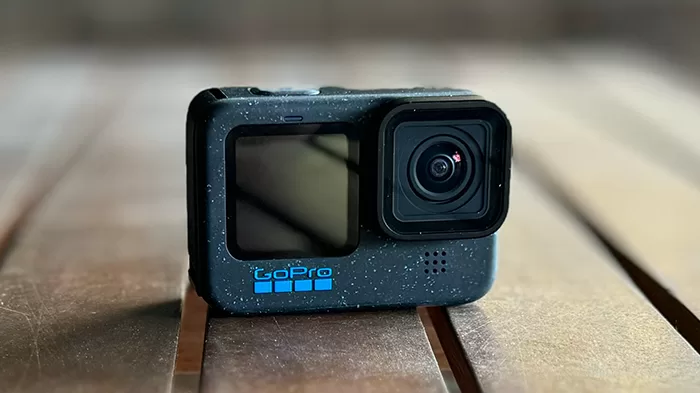
The GoPro Hero 12 Black isn’t a radical upgrade from the GoPro Hero 11 Black – but it’s got a couple of quality of life upgrades that do make it rather nice, even if you don’t jump out of planes for a living.
| Pros | Cons |
|---|---|
| Improved low light performance | Can still get quite hot after long recording sessions |
| Improved stabilisation | Weird Mac importing bug that GoPro seems to ignore |
| Inbuilt tripod mount | Push to cloud storage model is still very much present |
Score: 4.5/5
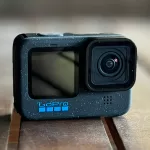 |
Buy The GoPro Hero 12 Black! | Buy On Amazon |
It genuinely wasn’t that long ago that I reviewed the GoPro Hero 11 Black. I was – and I noted this at the time – rather late in its lifecycle doing so, but I figured that was fine, as I wasn’t really in the core GoPro surfin’, bungee jumpin’, cliff climbin’ and otherwise extreme athlete style community. I’m just not built that way.
Also read:
GoPro Hero 11 Black Review
GoPro sent me the updated model, the GoPro Hero 12 Black to test out. I don’t want to spoil too much this early in the review, but I still don’t spend my days putting life and limb at risk for an adrenaline rush.
However, I do shoot a lot of video these days, so I was keen to see where the GoPro Hero 12 Black might be an improvement over its already impressive predecessor.
It’s not perhaps a big enough departure for too many GoPro Hero 11 Black owners to upgrade for, and some may miss the inclusion of GPS. For me, however, the improved low light capabilities, slight physical redesign and improved battery life do make it a winner, especially if you’re buying for the first time.
Design

GoPro has a fairly wide array of accessories already in the market, which creates a tension for the company when it comes to design.
Change the GoPro model up too much, and a whole host of expensive accessories will no longer work, which would annoy the existing GoPro community – and it’s not as though there aren’t competitors in the action camera market more than happy to gobble up a lot of GoPro’s market share.
That’s undeniably the reason why the visual changes between the GoPro Hero 11 Black and the GoPro Hero 12 Black appear pretty minimal at first glance. Pedantically, the GoPro Hero 12 Black should really be called the GoPro Hero 12 Black With Little Blue Speckles, but I guess this might make it easier to pick out of a case if you had a range of models to pick from.
The GoPro Hero 12 Black still has the same essential dimensions as the GoPro Hero 11 Black so that encasing mods like the Media Mod can still fit in place.
It features the same tough-to-open side casing that assists it in water resistance duties, and the same fold-down attachment feet for accessories… but there’s a change here too, and it’s one I like a lot.
For the GoPro Hero 11 Black, the only way to attach a standard tripod was by using a mod to then hook in, though there’s no shortage of quite cheap third party options that’ll let you do that pretty easily.
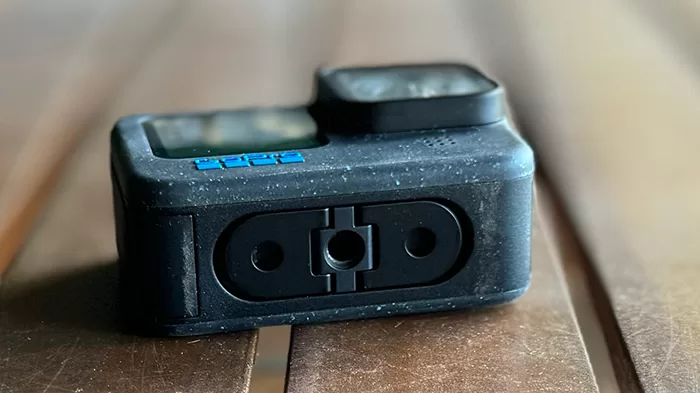
For the GoPro Hero 12 Black, you no longer need a mod, because there’s a small tripod screw hole between the two attachment feet. It’s such a simple design modification that I’m almost annoyed that they didn’t think of it earlier – and of course, if you’ve got an existing tripod mod part, you could still use that with the feet if you prefer that anyway.
Performance
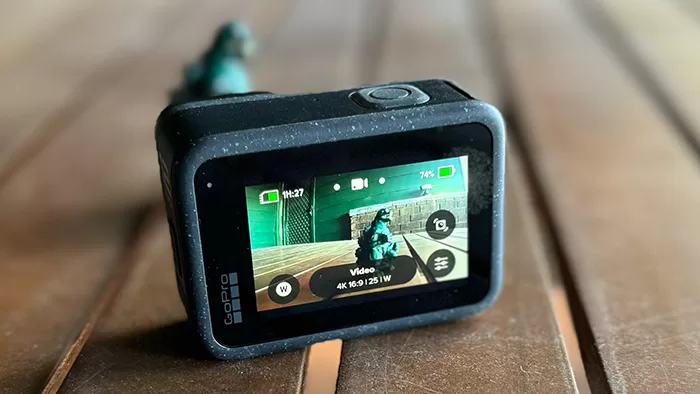
If you just looked at the sensor specifications for the GoPro Hero 12 Black against the existing Hero 11, you might be left a little puzzled. The GoPro Hero 12 ships with the same size sensor as the Hero 11, shooting the same sized 27MP still images and video at up to 5.3K/60.
However, GoPro has made changes to the way that GoPro Hero 12 Black shoots video. There’s a new improved stabilisation mode – HyperSmooth in GoPro marketing speak – that works slightly better than the Hero 11 in my estimation. The Hero 11 was already pretty good on that score, to be fair.
The GoPro Hero 12 Black can also shoot video directly to vertical video, giving it scope for the TikTok audience out there. It’s not my preferred shooting style, but more functionality is rarely a problem if it doesn’t get in the way. Video can also support HDR, and this does make a big difference, especially in lower light situations, where I found the GoPro Hero 11 Black somewhat lacking.
It’s still far from perfect, and there are better options in straight smartphone videography, but none that are this robust or have this level of inherent stabilisation. It’s ultimately a matter of the right tool for the right job.
GoPro’s also thrown in some higher-end production tweaks like timecode sharing between multiple cameras and GP-Log encoding for those who want more precise colour controls over their video footage.
The GoPro Hero 12 Black also now allows you to pair Bluetooth audio devices, calling out Apple AirPods specifically as a supported device not only for audio playback of your files, but also as a microphone.
I tested this by pairing up a set of AirPods Pro, and while it was a little fiddly getting the initial pairing up and running – largely because the AirPods Pro wanted to pair back with my phone the whole time – once that was done it did work rather well.
That opens up creative possibilities because you can shoot from a fixed GoPro Hero 12 Black through Bluetooth microphones while being away from the camera rather well – or at least to the serviceable distance of a Bluetooth connection, anyway.
When I tested the GoPro Hero 11 Black, I could set it against the tourist task of exploring Japan in finest travel vlogger style. My review time with the GoPro Hero 12 Black hasn’t been quite that exciting, basically just located in Sydney and testing around there with a little city walking, some jogging adventures and a few more deliberate test scenarios.
One feature that the GoPro Hero 11 Black has that’s been omitted from the Hero 12 Black is intergrated GPS. I didn’t feel its loss, but if that’s an important feature for your creative workflow, it might be wise to chase down a Hero 11 while you still can.
The GoPro Hero 12 Black is also compatible with a new wider lens, the “Max Lens Mod 2.0” that only works with the new camera. GoPro didn’t send me one of those to test out, but if you’re super keen on your widescreen videography for vlogging, it could be a way to quite literally stretch out your viewpoint – at an additional cost, of course.
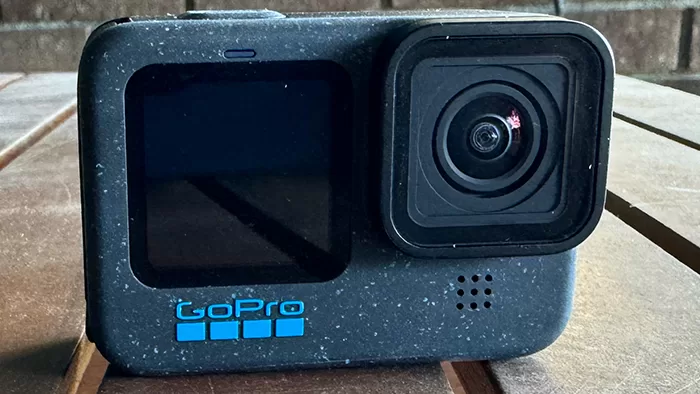
When it comes time to actually do something with the footage you’ve shot, GoPro’s model is still firmly built around selling subscriptions to its cloud based services, which will – if you set WiFi up on the camera via the GoPro app on your phone – automatically upload content to the cloud in original quality and remix it into shorter clips.
All of which is fine, and there is a play here to keep users subscribed by offering discounts on GoPro mods and cameras if you’re subscribed already, but as with the Go Pro Hero 11 Black, I’m more of a sneakernet kind of guy, more interested in getting files off the camera directly to a computer for editing, rather than using the GoPro Quik app.
Here, using the GoPro Hero 12 Black connecting up to a Mac, I hit a notable problem. Previously I’d resorted to pulling the microSD card from the camera (which is fiddly in itself), until I realised that the USB-C charging port on the side is also data capable. GoPro suggests for Mac users that you simply use Image Capture for direct import.
For what it’s worth, on a Mac if you have Android File Transfer installed it will try to connect that way too. But Android File Transfer is a buggy pile of nonsense that pretends to be an app most of the time, and there’s no change here.
At first, Image Capture seems like a great and workable solution. It sees files, lets you choose them and download them, ready for editing.
Ready, that is, unless your file is over 4.29GB in size. At that point, the files transfer, but as unreadable garbage. I’ve tried alternative connection programs with no joy, and ultimately I had to resort back to pulling the card from the Go Pro Hero 12 Black or hooking it through to a Windows machine.
This may be an issue with the way Image Capture thinks, but it feels like a problem that GoPro should solve, whether that’s a firmware matter or developing at least a simple Mac capture app.
Unfortunately, with its focus on subscriptions, I suspect it’s not a high priority for them, because the other solution is of course to opt for a GoPro subscription and upload to the cloud instead.
Battery
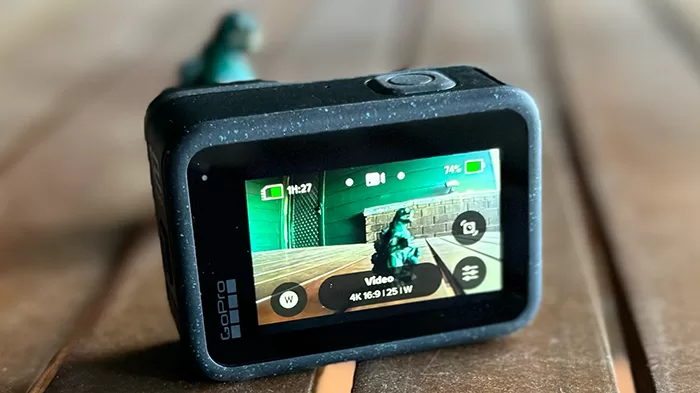
Battery life on action cameras can be a challenge, primarily because their nature means they’re ideally small… and batteries are big and heavy.
The GoPro Hero 12 Black comes with a 1,720mAh removable battery, and to give that some context, that’s less that just about any smartphone battery you can buy right now. You could pack in a bigger battery, but you’d need a bigger and less flexible camera, and it would weigh a whole lot more.
The shift away from GPS logging does give the GoPro Hero 12 Black a lot of its power improvements, I feel, with a claimed battery life of more than 95 minutes at 5.3K30, jumping up to over 155 minutes 1080p30.
Can it manage those figures? Mostly, but I did find, as with the GoPro Hero 11 Black that longer recording sessions did still seriously heat the camera body up.
Maybe that’s not so much a problem when you’re pounding the waves and it’s being naturally water cooled, but for those of us with a more leisurely video recording need for longer files, it’s a definite issue.
GoPro Hero 12 Black: Alex’s Verdict
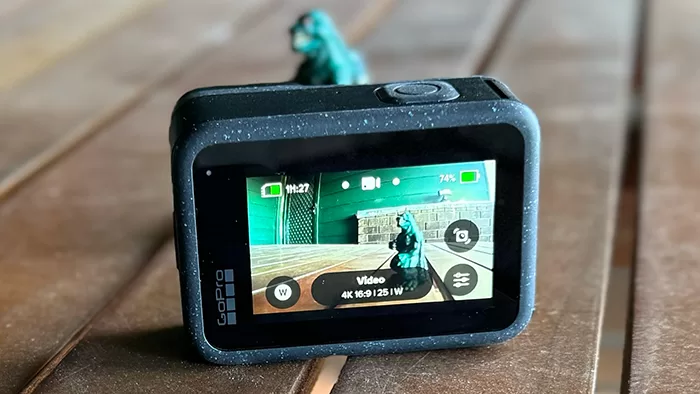
The GoPro Hero 12 Black is in the most important respects, an upgrade from the Hero 11 Black, though, like with most smartphone upgrades, I can’t quite see the sense in a year-on-year upgrade cycle here.
Still, the extra battery life and improved low light performance makes it a very good tool even if you’re not in that theoretically core “extreme” market.
GoPro Hero 12 Black: Pricing and availability
The GoPro Hero 12 Black retails in Australia for $649.95.
Buy one through the link below to help out AlexReviewsTech!
 |
Buy The GoPro Hero 12 Black! | Buy On Amazon |





